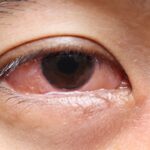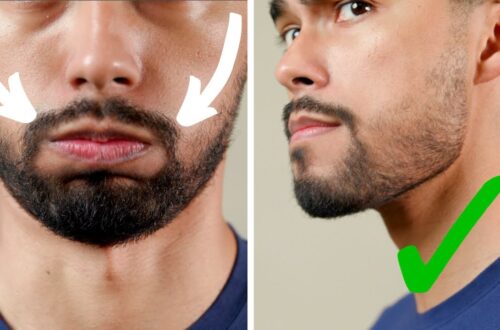Here are Different Types of Eating Disorders
It is important to understand different types of eating disorders because when most people think of eating disorders, they think of an extremely thin young woman who eats very little.
But there are actually three common eating disorders: Not everyone with an eating disorder appears underweight, and not all are women.
In different types of eating disorders, three of the most common eating disorders in children and adolescents are anorexia nervosa, and bulimia nervosa.
Other eating disorders that can be diagnosed in children are avoidant restricted eating disorder (ARFID), rumination disorder, and pica.
Children with serious eating disorders who do not fit into any of these disorders may have a widespread diagnosis called unspecified eating disorder. This is why it is important to understand different types of eating disorders
List of Different Types Of Eating Disorders
Anorexia

Anorexia nervosa is an eating disorder that causes children to starve. Children and adolescents with anorexia think they are overweight when others think they are too thin.
To maintain a very low weight, they may eat very little, intentionally vomit, or exercise vigorously.
It is possible that they do not understand that there is also a form of anorexia known as atypical anorexia, in which the patient does not appear to be underweight, but still exhibits all the other signs of anorexia and loses weight dangerously quickly.
In different types of eating disorders, anorexia usually begins during the teenage years. Children with anorexia do well and are popular in school, so it can be difficult for parents and other adults to identify the problem.
Girls are diagnosed much more often than boys, which may be because anorexia is harder to spot in boys.
Anorexia is very serious. The sooner you start treatment, the better. Left untreated, it can lead to fatal medical problems and even suicide.
Signs of anorexia include:
1. Extreme weight loss
2. They weigh much less than the norm for their age
3. So scared of getting fat
4. Refusing to eat normal amounts of food or going on extreme diets
5. Sees weight as a very important part of one’s identity
6. Inducing vomiting or using laxatives (called laxatives)
7. Exercise too much
8. Weak nails or hair loss
9. Constipation
10. Irregular menstruation
Bulimia
In different types of eating disorders, bulimia nervosa is an eating disorder in which children binge uncontrollably, known as binge eating.

After a child eats too much, they try to reverse binge eating by performing something called purging.
Intentionally throwing up, using laxatives, not eating, or exercising too much.
Unlike anorexic children, bulimic children are usually of normal weight or slightly overweight. But the way they maintain their weight is very unhealthy.
Bulimia is diagnosed more often in girls than boys and usually begins during puberty.
Children with bulimia often hide binge eating and pleural effusions, making them difficult to detect.
Common signs of binge eating include:
1. Eat a lot in a short time
2. Vomiting, taking laxatives, not eating at all, or exercising too much to balance overeating
3. Having a self-image centered mainly on weight
4. Missing a lot of food
5. Run to the bathroom immediately after eating
6. Long fasting
7. Secret meal
Physical effects of vomiting, such as sore throat, swollen glands, acid reflux, and acid damage to teeth
Binge Eating Disorder
Binge eating disorder is an eating disorder that causes children to overeat easily. In different types of eating disorders, they usually do it in secret and feel guilty and ashamed. Children and adolescents with bulimia have no control over their eating habits.
Children with binge eating disorder may be of normal weight or overweight. Unlike bulimics, children with binge eating disorder do not try to get rid of food by vomiting or using laxatives.
Signs of binge eating disorder are:
1. Eat very large amounts
2. Eat without feeling hungry
3. Eat very quickly
4. They eat too much and get sick
5. Eat secretly, thinking no one will notice
6. Overeating makes you depressed, anxious, or embarrassed
7. Keep losing weight and then gaining weight again
Avoidance/Restrictive Eating Disorder (ARFID)
Avoidant/Restrictive Eating Disorder (ARFID) is a recent diagnosis of an eating disorder that may be unfamiliar to you.
It is common in children and adolescents but may persist into adulthood. ARFID is often closely associated with other psychiatric disorders such as OCD and anxiety.
In different types of eating disorders, people with ARFID limit certain foods because they are often afraid of feeling nauseous or having a bad allergic reaction to certain foods, Hafeez explained.
It can also co-exist with developmental disorders such as autism, and symptoms can include a dislike of certain foods, textures and tastes, she added.
According to Weatherston-Yarborough, ARFID is not usually associated with weight loss goals, but weight loss is possible when food intake is restricted in this way.
Another problem is that it is usually associated with anxiety and depression, and poor diet by avoiding foods that are essential to a healthy, balanced diet.
Pika
There are no specific statistics to say exactly how many people live with pica, but it’s a rare eating disorder diagnosis.
Hafeez says it’s usually associated with another mental illness, such as schizophrenia, a psychotic disorder, or a developmental disability. Not necessarily.
Some people may develop pica-related intense cravings during pregnancy.It has been speculated that this may be due to iron or other nutrient deficiencies.
Pika’s warning signs are pretty clear when it comes to non-food cravings. Malnutrition can also cause. “Pica is a sign that the body is trying to make up for a nutritional deficiency,” says Hafeez.
Other Specific Eating Disorders (OSFED)
If an eating disorder does not fit the diagnostic descriptions of anorexia, bulimia, or binge eating disorder, it may be classified as a separate specific eating disorder (OSFED). A typical anorexia fits into this blanket term. Because people with it don’t necessarily meet the criteria for being underweight. I am not worried about weight loss.
You can even celebrate,” says Weatherston-Yarborough. Dietary cultures can be particularly toxic for people with atypical anorexia.
Weight loss and restrictive diets may not be recognized as physical and mental illnesses. “It actually prevents people from being diagnosed and treated as quickly as underweight people,” she adds.
Other eating disorders covered by the OSFED include:
- Infrequent binge-eating or binge-eating episodes
- Binge-eating disorder with dyspnea but not binge-eating,
- Night-eating syndrome (eating mainly late at night without much eating).
In general, it’s best to watch for signs of compulsive dieting and exercise, skipping or overeating other meals, and other unhealthy eating and self-esteem behaviors.
Orthorexia
Although not yet a formal eating disorder diagnosis, orthorexia often accompanies an eating disorder masked by a desire to eat “clean,” “healthy,” or “vegan.”, the goal of eating super-healthy can lead to unhealthy relationships with food.
“People with orthorexia worry about food quality, become preoccupied with food research, and eliminate more and more food groups, among other symptoms,” she says.
Health Benefits of Blueberries
Anxiety and an Anxiety disorder
Anxiety and an Anxiety disorder

A graduate of Computer Science and Information Management Technology. Diploma – Caregiving, Certificates – Dementia and Diabetes Awareness and Management. A researcher, blogger, songwriter, singer and acoustic guitarist. Born in an environment where natural talents such as healing are imparted at our natural birth. This natural talents of healing is the result of our genetic inheritance and the training from family environment.













